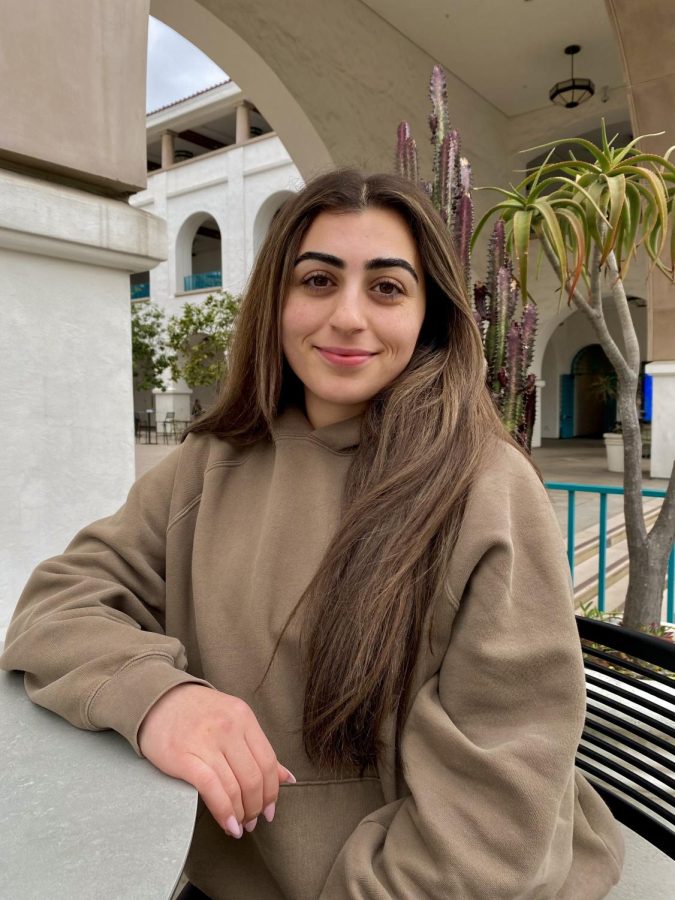Emerging from the cradle of civilization, Chaldeans thrived and built prosperous societies that have existed for over 5,000 years. This area is known as present-day northern Iraq. Chaldeans are an ethnic group of eastern-rite Catholics who speak Aramaic — a language known as the native tongue of Jesus.
Due to ongoing war and violence in Iraq, many Chaldeans fled primarily to America, but some dispersed to Australia and certain parts of Europe.
According to The San Diego Union Tribune, El Cajon contains the second-largest population of Chaldeans outside of Iraq, amounting to 15,000 individuals. Detroit is the largest, with Michigan Governor Gretchen Whitmer reporting over 150,000 Chaldeans in 2022.
Lilian Bakayou, senior operations manager of San Diego State University Math and Stats Learning Center, recalled how the Chaldean community changed after she immigrated to America in the 1980s from Baghdad.
“Just in the last 10 years, it has definitely increased in population because of all of the issues that have happened over there,” Bakayou said.
Human Rights Watch reported a mass exodus of Chaldeans that came to America and left almost half of the population in Iraq. The influx of Chaldean business owners changed the economic landscape of El Cajon, creating what locals call “Little Baghdad.”
Working together harmoniously, Middle Eastern nationalities who settled in San Diego have supported each other over the years. For instance, one can spot Middle Eastern-owned restaurants, bakeries and doctor’s offices on Main Street.
Bakayou explained how Detroit is years ahead of El Cajon regarding its Chaldean representation and establishment. She referenced a quote from Michael Serban, Cajon Valley Union School District administrator.
“He went to Michigan, and in that article, he stated, ‘Michigan is the future of San Diego,’” Bakayou said. “And I think it’s a very accurate representation because we are a mini Michigan.”
The community has found niches in San Diego schools as well. SDSU’s Cajon Valley Cohort has helped Chaldean students get their teaching credentials. This program has allowed for increased teacher diversity and Chaldean representation in education.
The Chaldean culture’s love of family and enthusiasm for their work inspires many to give back to their community.
Selvana Aleesha, a speech, language and hearing science major, came to America with her family when she was eight years old. Early experiences in America formed the way she wished to represent her community.
Aleesha remembered when she walked into her fourth grade class and asked a Middle Eastern girl if she spoke Aramaic. When the girl responded in Arabic — a language in the same family as Aramaic —Aleesha was delighted to recognize it and felt she belonged.
This experience became foundational for the work she has done during her time at SDSU.
After noticing that Aramaic-speaking Chaldeans were disadvantaged, Aleesha felt inclined to join the SDSU National Student Speech, Language and Hearing Association. She now serves as the non-profit organization’s treasurer.
“I took this position because I was like, ‘I want to be that person to kind of represent our community and be there for those who speak the Chaldean language,’” Aleesha said.
British linguist Geoffrey Allan Khan wrote about how Aramaic is an endangered language due to the cultural assimilation of immigrants in Western nations, consequently causing the Chaldean tradition to fade away. However, the language is still the native tongue of Chaldeans born in Iraq.
Chaldeans, though, have persevered and encouraged people to join in their cultural traditions.
SDSU alumna Valerie Kassab supports anyone’s endeavor to learn the Chaldean language. She explained how learning the language can allow non-Chaldeans to participate in cultural traditions, like the Chaldean mass.
“They can take courses at a local community college that teaches how to read and write Arabic,” Kassab said.
For many years the Chaldean community has grown and flourished throughout San Diego. Lively celebration and unwavering dedication to family define the culture. Although, CalMatters reports that there is still progress to be made to get equal political representation on the West Coast.
Many outside the community aren’t familiar with the culture or are aware of its existence, but the Chaldean lifestyle contains unique practices, cuisine and experiences.
Learning about and celebrating the Chaldean culture can broaden perspectives about an ethnic group often overlooked and misunderstood.









